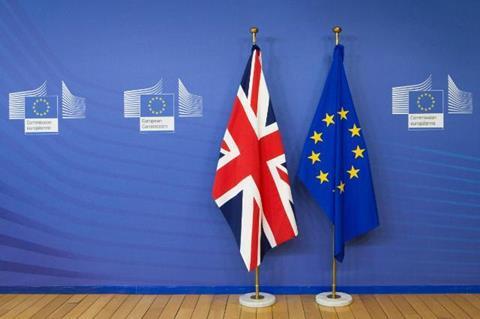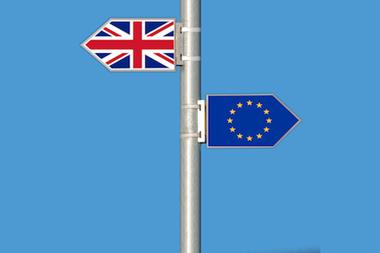The European Commission has proposed a three-year extension to the current rules of origin for battery electric vehicles (BEVs) and batteries under the EU-UK Trade and Cooperation Agreement (TCA).
The rules, which are due to change at the end of 2023, will mean the shipment of EVs between the UK to the EU (in both directions) are subject to a 10% tariff. The “one-off” extension of the current rules set before the TCA’s Partnership Council would run until December 31, 2026.

The Partnership Council oversees UK and EU implementation, application and interpretation of the TCA.
The EC said its latest proposal does not affect the TCA’s wider rules of origin, which will be applicable as of 2027. From then BEVs will have originating status if the maximum value of non-originating materials does not exceed 45% of the product. The standard rule is that when goods are exported under EU free trade agreements they must comply with rules of origin for tariff preferences and for vehicles that is either 40-45% non-originating content. The UK is currently exempt from that. Given the value of the battery it is almost impossible for manufacturers to meet the rule at the vehicle level, according to the European Automobile Manufacturers’ Association (Acea).
The rules of origin for BEVs and batteries under the TCA were designed in 2020 to incentivise investment in the EU’s battery manufacturing capacity, according to the EC. However, it said the scaling up of European battery manufacturing has been slower than anticipated and unforeseen circumstances, such as the supply chain disruption caused by the Covid pandemic, the war in Ukraine and increased competition from new international subsidy support schemes.
In September the EC launched an anti-subsidy investigation expected to last 13 months into whether EVs coming from China should be subject to punitive tariffs to protect European EV makers against cheaper imports.
Funding the battery chain
The EC has also announced support for battery production in the EU and is providing funding of up to €3 billion ($3.2 billion), for three years, to the most sustainable European battery manufacturers.
It said it would set up a dedicated Innovation Fund for the battery value chain and support manufacturing of the most sustainable batteries in member states.
Acea said it welcomed the proposal to extend the current rules of origin and urged approval from the European Council.
“This is vital to ensure the well-being of not only EU BEV manufacturing, but also of the whole European battery value chain,” explained ACEA director general, Sigrid de Vries. “Failure to approve the proposal would result in reduced competitiveness of our exports. It would also have a negative knock-on impact on demand for European batteries and battery materials, based on lost BEV market share to third-country competitors.”
The association said that market loss for EU vehicle makers would be equal to €4.3 billion over the next three years risked reducing BEV production by some 480,000 units, equivalent to the output of two average-size auto factories.
UK manufacturing
The proposal also has support in the UK. The Society of Motor Manufacturers and Traders (SMMT) has welcomed the proposal as “a simple and sensible approach”.
Mike Hawes, chief executive of the SMMT, said it was an approach “that will avoid a hit to our mutual trade, maintain competitiveness and, crucially, keep costs down for consumers who we so desperately need to buy these vehicles. It is vital for our economies and the environment that every government backs the proposal”.
Hawes also pointed to investment in the UK, including the £2 billion of government funding to support industrial transition through its Advanced Manufacturing Plan, which includes £50m of funding allocated to deliver a globally competitive battery supply chain by 2030.
“Extending the current rules of origin will give the time and certainty necessary for investments to come to fruition,” said Hawes.

























![Global[1]](https://d3n5uof8vony13.cloudfront.net/Pictures/web/a/d/s/global1_726550.svgz)














No comments yet